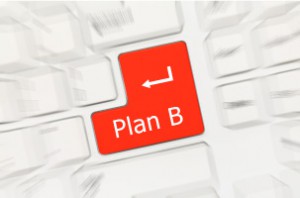
I’ve been a wild advocate for the Internet since the beginning, and I still believe in it as a massively liberating technology… but not in the current, popular form. The Internet that we know has been recaptured by the power mongers with a massive assist from hucksters. It is, to be very honest about it, all but finished. And considering the massive inertia and mindless obedience of the dominant 9/11 culture, it won’t be saved.
So, we need a Plan B. Many people don’t want to think about such a thing, and while I understand their hesitation, I can’t endorse anyone taking the ‘ostrich position.’
That being the case, I’ll start right out with the naked truth:
Big Brother is now called “Internet.”
Using the existing Internet, as most people do, involves Big Brother reading your mind and sticking his fingers into your brain. And that’s not something that is ‘coming soon’; it is something that is here NOW… and it’s getting worse all the time.
I’ll pass up the details in this article; I’ve covered them repetitively in the past. Whoever doesn’t want to believe me is entitled to his or her choice.
Plan A2
Plan A2 is the one I’ve been talking about for a decade or more: protecting your Internet traffic. I should warn you, however, that this gets harder every day. And that means that fast, easy, and cheap is not possible. To be clear: If you’re using cut-rate protection, you’re not protected.
Yes, I have a dog in this fight – I manage the Cryptohippie Service – but what I’m writing is true all the same. Cheap privacy services are not going to protect you these days. You need professional systems (with their own private key infrastructure, multiple hops, DNS, etc.).
You can still protect yourself (see this guide) but it’s real work… as in spending hours of focused effort, and consistently.
Beyond these things, you MUST stop using free services, especially Google and Facebook. They are the tele-screens from 1984 and are in some ways worse. Like it or not, that’s the truth.
The problem with Plan A2 is that you have to pay for it. It does still work (which is why Big Brother’s operators would like to outlaw anonymity services), but it isn’t free.
Plan A2 flies in the face of the triumphant Internet hucksters who have conned nearly the entire planet into believing that there really is such a thing as a free lunch. And reason be damned, the planet has fallen for it.
Ah well.
Plan B
Plan B is far simpler and easier than you’d guess: It’s to build our own networks. Here are the two major pieces:
Mesh networks. Meshes are local networks built with standard Wi-Fi components. They are cheap and fairly easy to build, especially after the first one or two. And they can cover large areas. In fact, a rural mesh network in Spain connects some 30,000 users. Here’s a list of mesh networks around the world.
Connections. Connecting networks can be accomplished by any number of means: fibers, radio links, phone lines, and so on. The one method that I particularly like is packet radio.
All sorts of things can be added to this base. Here are two that I like:
Ferry nodes. These are individual nodes (computers) that connect to both a mesh and the big Internet, ferrying data between the two: emails, page updates, etc.
FidoNet. FidoNet is a system for sending and receiving messages. But unlike the standard Internet, it doesn’t require real-time transmission. In other words, it is perfect for a mesh network that synchs with remote email servers only four times per day, for example. (This breaks the Big Brother Internet’s ability to correlate traffic… to read your mind so easily.)
You could easily go far beyond my short list, but this is a strong start. The External Links section of the Wikipedia mesh page would be a great place to start looking for further information and ideas.
The leading edge and the oppressed are already getting busy with mesh networks. This is where intelligent and ethical energies need to be spent, because the existing Internet is all but gone for anyone who wants some distance from Big Brother.
If you’re looking to start doing something that matters, I can barely think of a better area in which to start. If you have any technical skill at all, you’ll find it accessible. Building mesh networks requires fairly little cash and it is of major importance.
So, I recommend that you jump in and start building and start communicating with other people who are doing the same thing.
Then, once you understand what you’re doing, start innovating.
This is a line of work that’s worthy of your time and energy.
Paul Rosenberg
[Editor’s Note: Paul Rosenberg is the outside-the-Matrix author of FreemansPerspective.com, a site dedicated to economic freedom, personal independence and privacy. He is also the author of The Great Calendar, a report that breaks down our complex world into an easy-to-understand model. Click here to get your free copy.]
Enjoy the view.



In the greater Raleigh area, a number of folks have been experimenting with “mesh networks” using reconfigured WiFi gear for a number of years – essentially creating community networks which are not dependent upon any commercial service provider, and thus are beyond the control of any government agency regulation or “kill switch”.